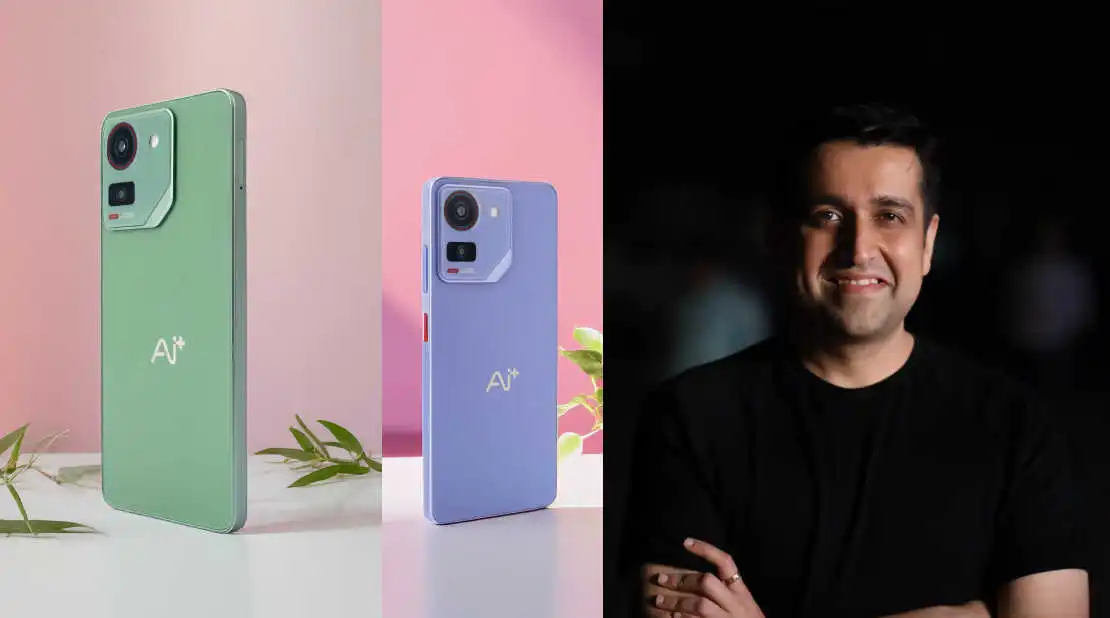Smartphones have transformed dramatically since the first iPhone in 2007. But the next big leap is already here: AI+ smartphones, devices deeply integrated with artificial intelligence (AI) to deliver smarter, faster, and more personalized experiences.
From real-time language translation, adaptive cameras, and battery optimization, to on-device generative AI models that can write emails, edit videos, or act as personal assistants — AI is reshaping what your phone can do. This article explores what AI+ smartphones are, their key features, benefits, use cases, and what the future holds.
Table of Contents
1. What are AI+ Smartphones?
An AI+ smartphone is a mobile device equipped with advanced artificial intelligence capabilities, often running on-device AI models, designed to make the user experience smarter and more contextual.
Unlike earlier phones, which relied on cloud-based AI for tasks like voice recognition (e.g., Siri, Google Assistant), AI+ smartphones bring AI onboard. This allows the device to:
Run AI tasks locally
Preserve privacy by processing data on-device
Reduce latency since no cloud round-trip is needed
Offer generative AI experiences even offline
Examples include the Google Pixel 8 Pro, Samsung Galaxy S24 Ultra, and upcoming devices with Qualcomm’s Snapdragon X Elite chips and NPUs (Neural Processing Units).
2. The Evolution of AI in Smartphones
| Era | Features |
|---|---|
| 2011–2015 | Basic voice assistants (Siri, Google Now) |
| 2016–2019 | AI-powered cameras, facial unlock |
| 2020–2022 | AI for power efficiency, real-time translation |
| 2023–2025 | Generative AI (text/image creation), on-device LLMs, AI assistants |
We’ve moved from simple rule-based AI to deep learning and transformer-based models embedded in our phones.
3. Core Technologies Behind AI+ Smartphones
a) Neural Processing Units (NPUs)
Specialized chips designed to handle AI workloads like image recognition, NLP, and generative AI.
b) On-Device LLMs (Large Language Models)
Phones now ship with compact versions of GPT-like models for offline capabilities.
c) Edge AI
Processing data locally instead of sending it to servers (for privacy, speed, and efficiency).
d) AI Co-Processors
In addition to CPU & GPU, modern smartphones have a dedicated AI Engine.
4. Key Features of AI+ Smartphones
i) Generative AI Assistant
Phones can now summarize emails, write social media posts, or create images directly — thanks to onboard generative AI.
ii) Smarter Cameras
AI enhances:
Scene detection & optimization
Night mode photography
Object removal from photos
Automatic framing for videos
iii) Real-Time Translation
Translate conversations or signs instantly, even offline.
iv) Personalization
Phones learn your habits to:
Suggest apps proactively
Adjust screen brightness & sound
Organize notifications smartly
v) Enhanced Security
AI detects malicious apps, phishing attempts, and unusual behavior.
vi) Battery & Performance Optimization
AI predicts usage patterns to allocate resources more efficiently.
5. Benefits of AI+ Smartphones
- Faster response times (due to on-device AI)
- Improved privacy (data stays on your phone)
- More contextual and personalized experience
- Smarter resource management (battery, memory)
- Offline capabilities (translation, summarization)
6. Examples of AI+ Smartphones in 2025
a) Google Pixel 8 Pro
Gemini Nano LLM on-device
Magic Editor for photos
AI-powered call screening
b) Samsung Galaxy S24 Ultra
Galaxy AI (text generation, translation)
ProVisual Engine for photography
c) Apple iPhone 16
Apple Intelligence with on-device AI and Private Cloud Compute
d) Xiaomi 14 Ultra
HyperOS with AI enhancements
e) AI-focused brands
Humane AI Pin (wearable companion)
Rabbit R1 (AI-first mobile device)
7. AI+ Smartphone Use Cases
i) Productivity
Summarize meetings, emails
Write documents & creative content
Organize calendars
ii) Creativity
Generate images, stickers, and videos
Edit photos seamlessly
iii) Accessibility
Live captions & translations
Voice commands & text-to-speech
iv) Travel
Offline maps with AI suggestions
Real-time currency & language help
v) Entertainment
Curated music & video recommendations
AI-generated playlists & summaries
8. Privacy & Ethical Considerations
AI+ smartphones also raise concerns:
Are on-device models truly secure?
How much personal data is collected?
Will AI biases affect decisions?
Many manufacturers now emphasize on-device processing, encrypted storage, and giving users control over what data is shared.
9. Challenges Ahead
i) Hardware Limitations
Running LLMs on small devices is resource-intensive.
ii) Battery Life
AI tasks consume more power.
iii) Cost
Premium hardware (NPUs, larger RAM) makes these devices expensive.
iv) Fragmentation
Different brands implement AI differently, creating inconsistent experiences.
10. Future of AI+ Smartphones
The next few years will likely bring:
Better compression of LLMs for phones
Seamless integration with wearables & IoT
More advanced personal agents embedded
Enhanced AR/VR capabilities through AI
We’re moving towards a world where your phone acts like a true personal assistant, understanding you deeply and helping proactively.
Conclusion
The rise of AI+ smartphones marks the beginning of a new era — where your phone is more than just a tool; it becomes an intelligent partner.
With on-device AI capabilities, these phones are faster, more private, and infinitely smarter than their predecessors. From better cameras and productivity tools to offline assistance and seamless personalization, AI is no longer a gimmick — it’s becoming the core of the mobile experience.
As the technology matures, and hardware continues to improve, AI+ smartphones will democratize advanced features that once required powerful desktops or cloud computing.
Whether you’re a creator, professional, student, or just someone who loves technology, an AI+ smartphone is a glimpse into the future of personal computing in your pocket.
FAQs
Q1. What is an AI+ smartphone?
A1. An AI+ smartphone is a mobile device with advanced artificial intelligence capabilities, including on-device processing, generative AI, and personalized features to enhance user experience.
Q2. How does AI improve cameras in smartphones?
A2. AI enables features like scene detection, HDR optimization, low-light photography, and background removal to create professional-quality images effortlessly.
Q3. Can AI+ smartphones work offline?
A3. Yes. Thanks to on-device LLMs and NPUs, many AI tasks (like summarizing text or translating languages) can happen offline.
Q4. Do AI+ smartphones compromise privacy?
A4. On-device AI actually improves privacy by processing data locally, minimizing the need to send sensitive information to cloud servers.
Q5. Which are the best AI+ smartphones today?
A5. Leading examples include Google Pixel 8 Pro, Samsung Galaxy S24 Ultra, and the upcoming Apple iPhone 16.
Q6. Will AI+ smartphones replace traditional assistants?
A6. Likely, yes. AI+ phones integrate assistants that are more capable, personalized, and context-aware than earlier cloud-based assistants.
Q7. How is AI different in smartphones compared to PCs?
A7. AI on phones is optimized for low-power, mobile-specific tasks and often focuses more on privacy, personalization, and portability.
Q8. What hardware enables AI on smartphones?
A8. NPUs, AI engines, and optimized SoCs like Snapdragon 8 Gen 3 or Apple’s A-series chips with dedicated neural cores power AI tasks.
Q9. Can AI help with battery life?
A9. Yes. AI predicts your usage patterns and adjusts power allocation to extend battery life.
Q10. Is an AI+ smartphone worth the upgrade?
A10. If you value privacy, productivity, better photos, and smarter interactions, an AI+ smartphone is a worthwhile investment.












